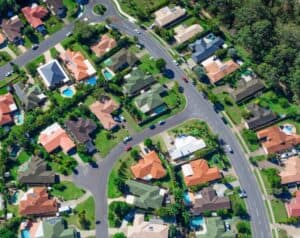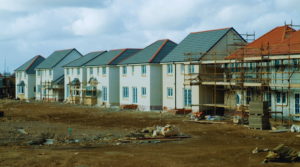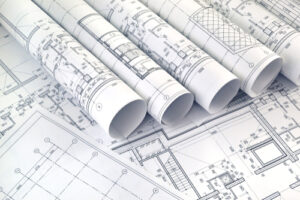At first glance, it’s tricky to see the dangers of an underfunded HOA reserve. Many HOAs often don’t understand the value of an adequate HOA reserve fund — until it’s too late!
HOA reserve funds offer your community a way to save for crucial, unexpected financial expenses that don’t occur regularly.
This makes a well-funded HOA reserve fund important for many reasons. An adequate HOA reserve fund provides:
- a boost in confidence from potential buyers
- improved financing options
- coverage for unknown or surprise costs
- the reduced financial burden of special assessments
Don’t make the mistake of underestimating the impact an HOA reserve fund can have. In the same way that a well-funded reserve offers stability and improves confidence in your community, an underfunded reserve can cause severe problems for your HOA.
Let’s dig a bit deeper…
HOA funding: not required, but recommended
In the state of California, HOAs aren’t required to fund reserves. However, you do have a fiduciary duty to conduct a reserve study every three years at the minimum.
So, before we explore the dangers of underfunded HOAs, let’s first look at what a reserve study involves — and how it can help you to build an adequately funded reserve in the long-term.
HOA reserve study
A reserve study is an extremely useful resource and tool for your HOA board members.
Reserve studies look at all the elements of your community that need or will potentially need replacement, repair, and maintenance soon.
The purpose of a reserve study is to reveal why, how, and when the replacement or repair will (likely) be required.
So, what makes a good reserve study?
Well, reserve studies should be based on facts. They should define the actual depreciation of your community’s equipment, facilities, and other related reserve fund elements.
Reserve study specialists
The fastest and simplest way to truly determine how much your HOA reserve fund needs is to hire a reserve study specialist.
Of course, you could run a reserve study independently, with the approval of your board members.
However, the danger here is that unless you have experience running a reserve study, it’s possible to miss critical details.
A reserve study specialist is trained in conducting a thorough investigation. They will work with you and your board members to evaluate the different facilities within your community.
The result? A complete record of the expenditures your HOA will need to cover for the next three years.
Once you’ve completed your reserve study, the benefits of an adequately funded HOA reserve will be obvious. Most importantly, you want your community to be prepared for any sudden unexpected costs that arise in the near future.
So, it’s time to think about reserve fund contributions…
Recommended reserve fund ratios and percentages
Here’s the reality.
A consistent contribution, somewhere between 15 – 40% of the operating bid, should be designated to an HOAs reserve fund.
The danger with contributions of 10% or less is that it can cause lenders to black-list you. HOA reserve fund contributions of 10% or less will also result in increased special assessments.
If your community finds it difficult to meet 10%, they certainly can’t afford the hefty cost of a special assessment or future repair.
HOA funding special assessment
A special assessment is a direct result of an underfunded HOA reserve fund.
It involves an unplanned, lump-sum payment that the HOA charges its community to cover unexpected shortfalls or expenses in the current budget.
In this situation, the danger of an underfunded HOA reserve is asking homeowners to increase payments they probably can’t afford.
Regular reserve contributions
The key to avoiding an underfunded HOA reserve fund is to ask for reasonable reserve contributions. The best approach for collecting HOA reserve fund payments is to charge an amount your residents can afford.
If you’ve conducted a reserve study, you should have a realistic idea of the contribution amount needed to pay for annual costs.
Ultimately, your collective reserve fund contributions need to cover the unknown liabilities of everything that could wear out or break within your community. This could include everything from replacing the parking garage roof to repainting the common area.
So, determine how much is needed — and then decide on a contribution amount that your residents can afford to pay.
Dangers of an underfunded HOA reserve
The benefits of having a reserve fund are clear.
However, there’s a significant difference between having an HOA reserve fund and operating an underfunded one.
The danger that comes with an underfunded reserve can negatively impact several aspects of your HOA, including:
- Your community members and your reputation
- Current and future financial funding opportunities
- Overall long-term repairs and costs
Community and reputation
Potential buyers feel at ease when buying a home with necessary improvements and the money to pay for them.
For example, potential buyers know that changes to laws and regulations occur often. Things like safety upgrades to aging elevators can unexpectedly become mandatory.
With a fully funded reserve fund, an unexpected expense is manageable.
The danger of an underfunded HOA reserve is that it’s simply not possible to pay for infrastructure changes and other related repairs successfully.
This is why an underfunded HOA reserve fund is a red flag to potential buyers. They’ll assume that a special assessment is inevitable — which is a huge investment deterrent.
Annual budget, cash flow and financing
Should you seek financing, a properly funded HOA reserve budget can be a non-negotiable asset.
When refinancing lines of credit or mortgages, for example, banks require adequate reserve funding.
If your HOA reserve fund is too low, banks have the right to request an improved balance before they’ll allow you to refinance.
Therefore, one of the dangers of an underfunded reserve fund is significant financial setbacks.
Financial setbacks will not only impact smaller maintenance repairs, like replacing the worn-out carpet in communal hallways. They’ll also create barriers to other important financial needs like refinancing and loans.
Underfunded HOA reserve fund: increased long-term costs
A reserve fund helps to protect you and your community from the unexpected.
The purpose of an HOA reserve fund is to help subsidize urgent and expensive maintenance and major repair issues. So, an underfunded HOA reserve fund can mean important repair work simply doesn’t get finished.
But ignoring important fixes and putting off repairs and replacements will only increase the damage over time.
In the long-term, today’s underfunded HOA reserve fund will incur the danger of higher costs in the future.
Understanding HOA reserve funds
Understanding the dangers of an underfunded HOA reserve fund is crucial. Only then can you avoid the dangers that impact the communities you build!
To learn more about HOA budgeting services and HOA reserve accounts, get in contact with the friendly and professional team at California Builder Services. They can help you ensure your HOA and community’s health — both now and in the future!








